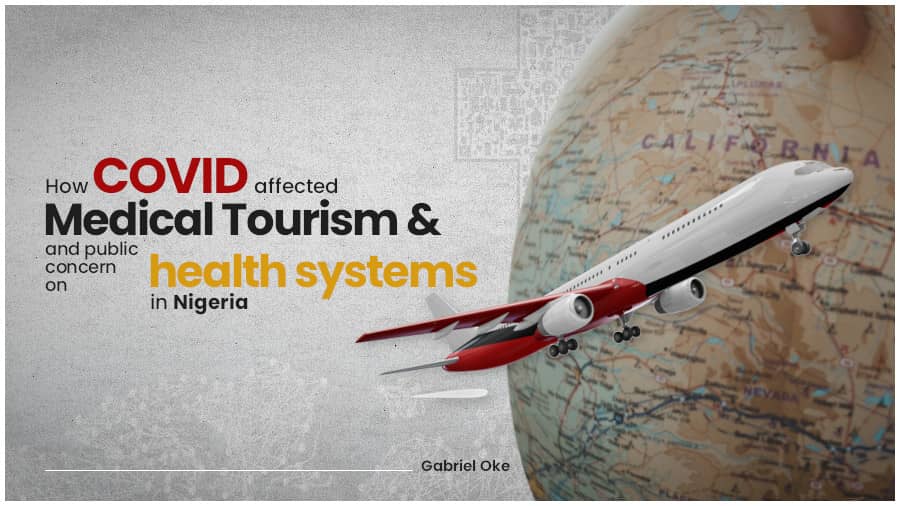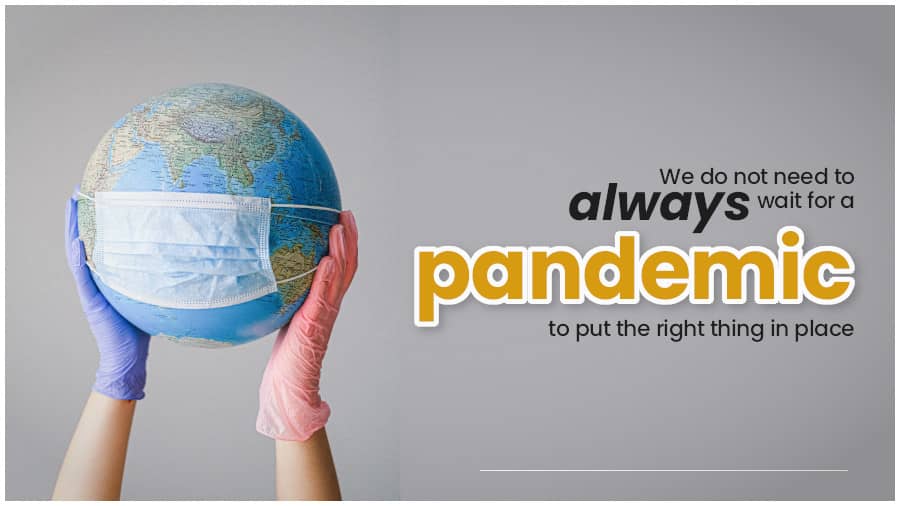

A responsive and responsible government should prioritize the overall well-being of the citizens above other considerations. In Nigeria, the insensitivity of the governments at different levels is evident as a larger part of the population cannot afford basic healthcare services. A lot of policies have to be supported by intergovernmental and non-governmental organisations. This has led to a lack of mistrust in governance and low productivity. A lot of people who could afford medical tourism prefer to travel to foreign countries to access healthcare. Many times, people are referred by their physicians to foreign hospitals for some procedures that can not be conducted in Nigeria.
The Nigerian healthcare system has been affected by the unavailability of quality resources and poor state of health facilities/structure. The system has also been affected by inadequate supply of essential drugs and supplies, inadequate supervision, poor human resources, mismanagement, poor remuneration and lack of motivation. Lack of fair and sustainable health care financing with very low per capita health spending have also been a problem and so COVID 19 pandemic, therefore, met a struggling healthcare system.
Nigerian healthcare workers are also travelling abroad because of a lack of job satisfaction. An average of 20,000 Nigerians travels to India each year for medical assistance due to the lack of a sound healthcare system in Nigeria. The question that needs an immediate answer is who will give quality healthcare to the Nigerian population? Hospitals do not pay adequate salaries to health workers as health workers go on strike after agreements between the government and their professional bodies are not honoured by the government. Therefore there is a massive brain drain of health workers from Nigeria to developed countries.
There is no comprehensive database of peoples health records which makes everything harder to track within the healthcare system. Most drugs are imported to Nigeria as there are few manufacturers. Many primary healthcare centres across the country do not get at least enough medications for their patients. COVID-19 changed our lives and nigerians could not travel for medical tourism.
It is now more clear than ever that a good health system can help more than managing diseases but also help prevent infections that can cross borders. The Health systems of developed countries that had been safe havens were overwhelmed by the healthcare needs of their citizens and migrants could not be received. Will Nigerians continue to be medical tourists to enjoy quality healthcare?

Something positive came out of the COVID-19 pandemic as there was a wake-up call for the government at all levels and the private sector to improve our healthcare systems. The Federal Government and some state governments released hundreds of millions. This was also supported by the private sector and individual donations.
Immediately the COVID-19 pandemic started, a lot of laboratories were strengthened and new ones were established for testing COVID19. We do not need to always wait for a pandemic to put the right thing in place. In 2019, Nigeria Center Disease Control (NCDC) Director-General, Dr Chikwe Ihekweazu, said, “Nigeria needs to galvanise support to maintain gains recorded in epidemic preparedness between 2017 and 2019. NCDC need support in three cross-cutting areas; increased budgetary allocation, improved coordination and implementation, and monitoring. The keys to improved budgeting are increased allocation, release, and tracking’’.
The resources spent so far in responding to COVID-19 could have been spent in ensuring that Nigeria is better prepared for infectious disease outbreaks. The rush to establish, accredit, and strengthen laboratories should not have been the case if epidemic preparedness and Universal Health Coverage had been made a priority. Nigerian government need to prioritise healthcare so that the trust of the citizens in the government can be restored.
Just as COVID-19 brought together funds and collaborations to tackle the outbreak, Nigeria needs to increase funding for epidemic preparedness to prevent future burden on the current gain we have at the moment. We need to enhance our surveillance system using technology. Events like Health meet Tech by organisations like EpiAfric should be supported by the government so that innovations and ideas that can transform the healthcare sector can come to life.
We also need to scale up research and development so that we can produce drugs, vaccines and healthcare resources locally, this will reduce the cost the government put into giving healthcare to the people. There is a great need for government to motivate health workers and build partnerships with the private sector to improve the healthcare sector. All these are important because only a healthy population can contribute to economic development.
References
1. Ifeanyi Nsofor: Without Health, we have nothing (TedxOguiRoad, 2018). Available at: https://www.youtube.com/watch?v=u4r_0TLTBQw
More from Gabriel Oke here.
The title, “Without Health We Have Nothing” is based on the author Ifeanyi Nsofor, in TedxOguiRoad, 2018.
HPHR.org was designed by ComputerAlly.com.
Visit HPHR’s publisher, the Boston Congress of Public Health (BCPH).
Email communications@bcph.org for more information.

Click below to make a tax-deductible donation supporting the educational initiatives of the Boston Congress of Public Health, publisher of HPHR Journal.![]()